#Azure IoT
Explore tagged Tumblr posts
Text
Difference Between Azure and AWS IoT
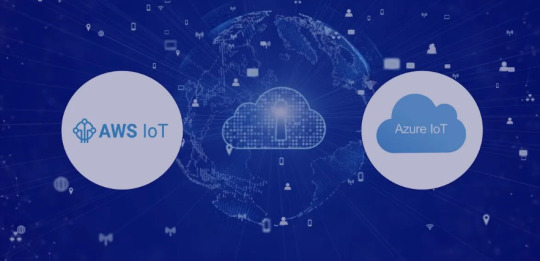
If you want to know about the difference between AWS IoT vs Azure IoT and which one is right for your business then you should read this blog.
1 note
·
View note
Text
WordPress Security Services Tailored to Your Business Needs
Atcuality understands that every WordPress website has unique security needs. Our specialized WordPress security services provide customized solutions to safeguard your website from malicious attacks, unauthorized access, and technical vulnerabilities. Whether you own a blog, corporate website, or online store, our comprehensive approach includes malware scanning, vulnerability patching, firewall implementation, and site backups. Atcuality’s team of security professionals works tirelessly to monitor and eliminate threats before they can impact your business. With advanced tools and strategies like SSL encryption and uptime monitoring, we ensure your website operates securely while maintaining peak performance. Cyber threats evolve daily, but with Atcuality, you can stay one step ahead. Don’t let your website become a target—secure your site and maintain customer trust with our proven WordPress security solutions.
#seo marketing#seo services#artificial intelligence#digital marketing#iot applications#seo company#seo agency#amazon web services#azure cloud services#ai powered application#ai applications#ai app development#virtual reality#vr development#vr games#wordpress#web developers#web development#web design#web developing company#website developer near me#wordpress development#web hosting#website#augmented and virtual reality market#augmented human c4 621#augmented intelligence#augmented reality#iot#iotsolutions
4 notes
·
View notes
Text
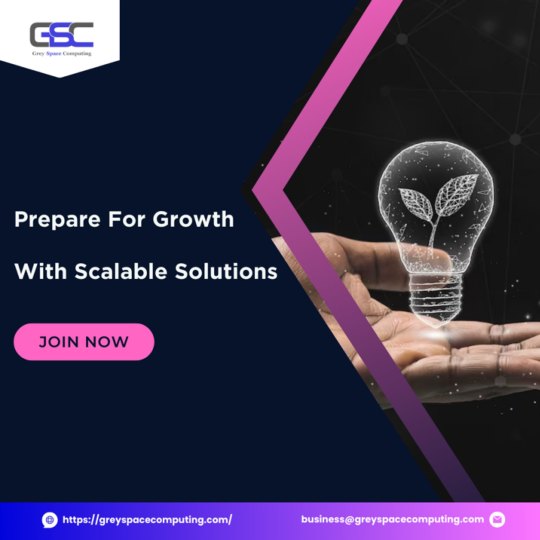
Growth is exciting, but only if your app can handle it! Cloud technology ensures your app scales effortlessly to meet increasing demand. 📈 Get ready for success! 🔗Learn more: https://greyspacecomputing.com/custom-mobile-application-development-services/ 📧 Visit: https://greyspacecomputing.com/portfolio
#GreySpaceComputing#CloudTech#AppScalability#cloudcomputing#cloud#technology#cybersecurity#aws#bigdata#devops#it#datacenter#azure#cloudstorage#linux#programming#software#tech#iot#cloudservices#coding#cloudsecurity#machinelearning#informationtechnology#datascience#business#python#security#microsoft#dataprotection
2 notes
·
View notes
Text
My Journey with Azure IoT Hub: Connecting and Managing IoT Devices at Scale
The Internet of Things (IoT), which enables seamless connectivity and automation across numerous industries, has completely changed the way we engage with technology. I was curious to learn more about the Internet of Things and its possible uses as an aspiring IoT enthusiast. My experience using Azure IoT Hub, Microsoft’s cloud-based IoT platform, and how it assisted me in connecting and managing IoT devices at scale are both discussed in this blog.
Getting Started with Azure IoT Hub

To embark on my IoT journey, I began by understanding the fundamentals of Azure IoT Hub. Azure IoT Hub is a fully managed service that acts as a central hub for bi-directional communication between IoT devices and the cloud. It provides secure, reliable, and scalable connectivity for IoT solutions. Setting up an Azure IoT Hub was my first step. While the process was relatively straightforward, I encountered a few challenges along the way.
Connecting IoT Devices
Once Azure IoT Hub was set up, I delved into the world of IoT devices. I worked with various types of IoT devices, ranging from simple sensors to complex industrial machines. Connecting these devices to Azure IoT Hub required the implementation of device-specific protocols such as MQTT or HTTP. Additionally, I focused on securing device connections and data transmission by utilizing security features provided by Azure IoT Hub.
Real-world examples of IoT devices connected to Azure IoT Hub are aplenty. For instance, in the healthcare industry, wearable devices can transmit patient vitals to Azure IoT Hub, allowing healthcare providers to monitor and respond to critical situations promptly. In smart homes, IoT devices such as thermostats and security cameras can be connected to Azure IoT Hub, enabling remote control and monitoring capabilities.
Managing IoT Devices at Scale
As my IoT project grew, I encountered the need to scale up the number of connected devices. Azure IoT Hub offered robust device management features that simplified the process of managing a large fleet of devices. I could remotely monitor the health, status, and firmware version of each device, enabling efficient troubleshooting and maintenance. Implementing best practices for device management, such as grouping devices based on location or functionality, enhanced the overall operational efficiency of my IoT solution.
Data Ingestion and Processing
Data collected from IoT devices is a valuable asset that can drive actionable insights and informed decision-making. Azure IoT Hub facilitated the ingestion and routing of data to Azure services for further processing and analysis. I had the opportunity to work with Azure Stream Analytics and Azure Functions, which enabled real-time data processing, transformation, and visualization. Leveraging these services allowed me to unlock the true potential of IoT data and derive meaningful insights.
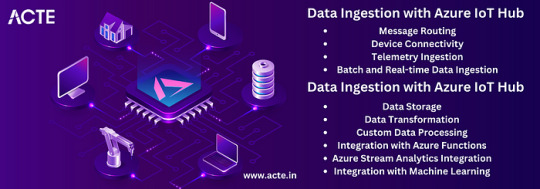
Security and Compliance
Any IoT solution must prioritize security. Azure IoT Hub provided robust security features that ensured end-to-end protection of IoT deployments. These features included device authentication, message encryption, and integration with Azure Active Directory for access control. Additionally, Azure IoT Hub helped me meet compliance and regulatory requirements by providing built-in support for industry standards such as ISO 27001, HIPAA, and GDPR. Throughout my journey, I learned valuable lessons and implemented best practices for securing IoT solutions.
Scalability and Performance
Scaling an IoT solution to handle thousands or millions of devices is a complex task. Azure IoT Hub offered scalability features that allowed me to effortlessly handle large-scale IoT deployments. With Azure IoT Hub’s device-to-cloud messaging capabilities, I could reliably transmit messages to and from a massive number of devices. Moreover, I gained insights into optimizing IoT solutions for performance by considering factors such as message size, frequency, and device capabilities.
Real-World Use Cases
To understand the versatility of Azure IoT Hub, it is crucial to explore real-world use cases. In the manufacturing industry, Azure IoT Hub can be leveraged to connect and monitor machines on the factory floor, ensuring optimal performance and predictive maintenance. In the agriculture sector, IoT devices connected to Azure IoT Hub can collect data on soil moisture levels, temperature, and humidity, enabling farmers to make data-driven decisions for irrigation and crop management. These use cases highlight the valuable role that Azure IoT Hub plays in various domains and industries.
Future of IoT and Azure IoT Hub
The future of IoT is promising, with emerging trends shaping the landscape. As IoT continues to evolve, Azure IoT Hub will play a crucial role in enabling seamless connectivity, advanced analytics, and artificial intelligence capabilities. Integration with other Azure services and continuous updates from Microsoft ensure that Azure IoT Hub remains at the forefront of IoT innovation. The possibilities for IoT applications are limitless, and Azure IoT Hub will continue to empower developers and organizations to build robust and scalable IoT solutions.
Throughout my journey with Azure IoT Hub, I gained valuable insights and experiences. Azure IoT Hub simplified the process of connecting and managing IoT devices, providing a reliable and scalable platform. The seamless integration with other Azure services allowed me to unlock the full potential of IoT data. Moreover, the security and compliance features provided peace of mind, ensuring that my IoT solution was protected from threats. Overall, Azure IoT Hub has been instrumental in my IoT journey, contributing to enhanced efficiency and productivity.
Recommendations and Tips
For those interested in starting their own IoT journey with Azure IoT Hub, I offer the following recommendations and tips:
Begin with a clear understanding of your IoT use case and requirements.
Familiarize yourself with the documentation and resources provided by Microsoft to gain a solid foundation.
Start small and gradually scale your IoT solution as needed.
Take advantage of the device management and security features offered by Azure IoT Hub.
Leverage other Azure services such as Azure Stream Analytics and Azure Functions to derive meaningful insights from IoT data.
Stay updated on emerging trends and best practices in the IoT space.
To deepen your knowledge of IoT and Azure IoT Hub, I recommend exploring Microsoft’s official documentation, participating in the ACTE Technologies Microsoft Azure training, and attending IoT-focused conferences and events.

Azure IoT Hub has proven to be a powerful and comprehensive platform for connecting and managing IoT devices at scale. Throughout my journey, I witnessed the transformative potential of IoT solutions and the crucial role played by Azure IoT Hub in enabling seamless connectivity, advanced analytics, and robust security. As IoT continues to evolve, Azure IoT Hub will undoubtedly remain at the forefront of IoT innovation, empowering organizations to build scalable and efficient IoT solutions. I encourage readers to embark on their own IoT journeys, leveraging the capabilities of Azure IoT Hub to unlock the full potential of IoT. Join me in embracing the future of IoT and revolutionizing industries through connected devices. Please leave your comments, stories, and inquiries in the space provided below. Let’s continue the conversation and explore the endless possibilities of IoT together.
#microsoft azure#cloud services#information technology#education#tech#technology#iot#innovation#cloud computing
5 notes
·
View notes
Text
Demystifying Microsoft Azure Cloud Hosting and PaaS Services: A Comprehensive Guide
In the rapidly evolving landscape of cloud computing, Microsoft Azure has emerged as a powerful player, offering a wide range of services to help businesses build, deploy, and manage applications and infrastructure. One of the standout features of Azure is its Cloud Hosting and Platform-as-a-Service (PaaS) offerings, which enable organizations to harness the benefits of the cloud while minimizing the complexities of infrastructure management. In this comprehensive guide, we'll dive deep into Microsoft Azure Cloud Hosting and PaaS Services, demystifying their features, benefits, and use cases.
Understanding Microsoft Azure Cloud Hosting
Cloud hosting, as the name suggests, involves hosting applications and services on virtual servers that are accessed over the internet. Microsoft Azure provides a robust cloud hosting environment, allowing businesses to scale up or down as needed, pay for only the resources they consume, and reduce the burden of maintaining physical hardware. Here are some key components of Azure Cloud Hosting:
Virtual Machines (VMs): Azure offers a variety of pre-configured virtual machine sizes that cater to different workloads. These VMs can run Windows or Linux operating systems and can be easily scaled to meet changing demands.
Azure App Service: This PaaS offering allows developers to build, deploy, and manage web applications without dealing with the underlying infrastructure. It supports various programming languages and frameworks, making it suitable for a wide range of applications.
Azure Kubernetes Service (AKS): For containerized applications, AKS provides a managed Kubernetes service. Kubernetes simplifies the deployment and management of containerized applications, and AKS further streamlines this process.
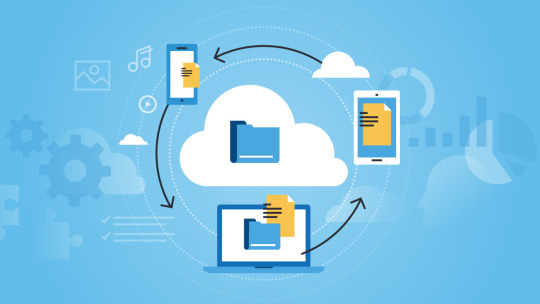
Exploring Azure Platform-as-a-Service (PaaS) Services
Platform-as-a-Service (PaaS) takes cloud hosting a step further by abstracting away even more of the infrastructure management, allowing developers to focus primarily on building and deploying applications. Azure offers an array of PaaS services that cater to different needs:
Azure SQL Database: This fully managed relational database service eliminates the need for database administration tasks such as patching and backups. It offers high availability, security, and scalability for your data.
Azure Cosmos DB: For globally distributed, highly responsive applications, Azure Cosmos DB is a NoSQL database service that guarantees low-latency access and automatic scaling.
Azure Functions: A serverless compute service, Azure Functions allows you to run code in response to events without provisioning or managing servers. It's ideal for event-driven architectures.
Azure Logic Apps: This service enables you to automate workflows and integrate various applications and services without writing extensive code. It's great for orchestrating complex business processes.
Benefits of Azure Cloud Hosting and PaaS Services
Scalability: Azure's elasticity allows you to scale resources up or down based on demand. This ensures optimal performance and cost efficiency.
Cost Management: With pay-as-you-go pricing, you only pay for the resources you use. Azure also provides cost management tools to monitor and optimize spending.
High Availability: Azure's data centers are distributed globally, providing redundancy and ensuring high availability for your applications.
Security and Compliance: Azure offers robust security features and compliance certifications, helping you meet industry standards and regulations.
Developer Productivity: PaaS services like Azure App Service and Azure Functions streamline development by handling infrastructure tasks, allowing developers to focus on writing code.
Use Cases for Azure Cloud Hosting and PaaS
Web Applications: Azure App Service is ideal for hosting web applications, enabling easy deployment and scaling without managing the underlying servers.
Microservices: Azure Kubernetes Service supports the deployment and orchestration of microservices, making it suitable for complex applications with multiple components.
Data-Driven Applications: Azure's PaaS offerings like Azure SQL Database and Azure Cosmos DB are well-suited for applications that rely heavily on data storage and processing.
Serverless Architecture: Azure Functions and Logic Apps are perfect for building serverless applications that respond to events in real-time.
In conclusion, Microsoft Azure's Cloud Hosting and PaaS Services provide businesses with the tools they need to harness the power of the cloud while minimizing the complexities of infrastructure management. With scalability, cost-efficiency, and a wide array of services, Azure empowers developers and organizations to innovate and deliver impactful applications. Whether you're hosting a web application, managing data, or adopting a serverless approach, Azure has the tools to support your journey into the cloud.
#Microsoft Azure#Internet of Things#Azure AI#Azure Analytics#Azure IoT Services#Azure Applications#Microsoft Azure PaaS
2 notes
·
View notes
Text
AI Platform Engineer
Job title: AI Platform Engineer Company: Morgan Stanley Job description: AI Platform Engineer Glasgow JR016085 This role is for a platform engineer who will help build a firmwide…, available models such as GPT, Llama, Hugging Face etc. and libraries such as Langchain Analyze, investigate, and implement GenAI… Expected salary: Location: Glasgow Job date: Sun, 13 Jul 2025 07:24:43 GMT Apply for the…
#5G#Aerospace#artificial intelligence#audio-dsp#Azure#CTO#data-privacy#dotnet#ethical AI#full-stack#gcp#GenAI Engineer#GIS#govtech#iOS#iot#low-code#NFT#power-platform#prompt-engineering#Python#regtech#Salesforce#SEO#sharepoint#SoC#system-administration#ux-design#vr-ar
0 notes
Text
#Remote IoT APIs#IoT Device Management#Google Cloud IoT Core#AWS IoT#Microsoft Azure IoT#ThingSpeak#Losant IoT#IBM Watson IoT#IoT Solutions 2025
0 notes
Text
How Azure Cloud Improves Remote Work Solutions in Dubai

As Dubai continues its journey toward becoming a global leader in digital transformation, businesses are increasingly adopting innovative technologies to remain competitive. The rise of remote work has created a need for reliable, scalable, and secure solutions to support distributed teams. Azure Cloud, a robust cloud computing platform from Microsoft, is proving to be a game-changer for enabling remote work in Dubai.
In this article, we’ll explore how Azure Cloud is transforming remote work for businesses in Dubai by enhancing productivity, ensuring security, and offering scalability.
The Growing Need for Remote Work Solutions in Dubai
Dubai is a global hub for commerce, technology, and innovation. With a diverse workforce and a dynamic economy, companies in the region need flexible solutions to adapt to:
The increasing prevalence of remote and hybrid work models.
Cross-border collaboration among multinational teams.
Digital tools are growing important in maintaining productivity and connectivity.
The COVID-19 pandemic accelerated the adoption of remote work globally, and Dubai was no exception. Businesses across various sectors quickly realized that traditional IT infrastructure was insufficient to meet the demands of remote work, leading to a surge in cloud adoption.
Azure Cloud stands out as a preferred choice for businesses in Dubai, thanks to its advanced capabilities and alignment with the region’s technological ambitions.
Key Azure Cloud Features That Support Remote Work
Azure Cloud offers a range of features specifically designed to support remote work environments. These include:
Virtual Desktop Infrastructure (VDI): Azure Virtual Desktop allows employees to access their work desktops and applications from anywhere securely.
Collaboration Tools: Seamless integration with Microsoft 365 enables efficient teamwork through apps like Teams, SharePoint, and OneDrive.
Scalable Storage: Azure provides secure, cloud-based storage solutions, ensuring employees can access and share files easily.
Identity and Access Management: Azure Active Directory ensures secure and role-based access to company resources.
Real-Time Analytics: Azure-powered insights help organizations monitor employee productivity and optimize workflows.
These features combine to create a robust ecosystem for managing remote teams effectively.
Benefits of Azure Cloud for Remote Work in Dubai
Enhanced Collaboration
One of the biggest challenges of remote work is maintaining seamless communication and collaboration. Azure Cloud integrates with Microsoft 365, enabling teams to:
Conduct virtual meetings via Microsoft Teams.
Share and co-edit documents in real-time using OneDrive.
Manage projects efficiently through SharePoint and Planner.
For Dubai’s multinational workforce, these tools are essential for bridging cultural and geographic gaps.
Improved Security
Data security is a top priority for businesses operating in Dubai, particularly those handling sensitive information. Azure Cloud offers:
End-to-End Encryption: Protects data during transmission and storage.
Advanced Threat Detection: AI-driven tools identify and mitigate potential cybersecurity threats.
Compliance with Global Standards: Azure complies with ISO, GDPR, and local data protection regulations in the UAE.
These security features provide peace of mind for organizations transitioning to remote work.
Cost-Efficiency
Azure’s pay-as-you-go model allows businesses to scale resources based on demand, reducing unnecessary expenses. This flexibility is especially beneficial for startups and SMEs in Dubai, which may have fluctuating workloads.
Seamless Scalability
As businesses grow, so do their technological needs. Azure Cloud ensures scalability without significant infrastructure investment, making it easier for Dubai companies to onboard new remote employees or expand operations.
Business Continuity
Azure’s disaster recovery and backup solutions ensure that businesses remain operational even during unexpected disruptions. This is crucial for remote teams that rely on uninterrupted access to tools and data.
Azure Cloud Solutions Tailored for Remote Work in Dubai
Azure Virtual Desktop
Azure Virtual Desktop allows employees to access their work environment securely from any device. It supports popular business applications and provides a consistent user experience, even in remote settings.
Example: A Dubai-based marketing agency uses Azure Virtual Desktop to enable its designers and content creators to collaborate on campaigns from different locations, ensuring continuity and quality.
Microsoft Teams on Azure
Microsoft Teams, hosted on Azure, is a central hub for communication and collaboration. It facilitates:
Video conferencing.
File sharing and real-time document editing.
Task management and workflow integration.
Example: A multinational logistics company in Dubai leverages Teams to coordinate operations across its global network.
Azure AI and Machine Learning
Azure’s AI-driven tools help businesses optimize remote work by providing:
Predictive analytics for workload management.
Chatbots for employee support.
Insights into team productivity and engagement.
Example: A healthcare provider in Dubai uses Azure AI to streamline administrative tasks, allowing remote employees to focus on patient care.
Success Stories: Dubai Businesses Embracing Azure Cloud
Financial Services Firm
A leading financial institution in Dubai adopted Azure Cloud to support its remote workforce. By implementing Azure Virtual Desktop and advanced security features, the firm improved employee productivity while ensuring compliance with regulatory standards.
Retail Chain
A retail chain with operations across the UAE used Azure to enable remote collaboration between its store managers and head office. This resulted in faster decision-making and streamlined operations.
Education Sector
A private university in Dubai leveraged Azure to offer virtual classrooms and remote access to educational resources. The platform ensured uninterrupted learning for students during the pandemic.
Azure Cloud and Dubai’s Vision for the Future
Dubai’s government is committed to fostering a digitally advanced economy through initiatives like the Dubai Smart City project and Dubai Internet City. Azure Cloud aligns perfectly with these ambitions by:
Supporting businesses in adopting cutting-edge technologies.
Enabling sustainable and flexible work models.
Enhancing the global competitiveness of Dubai’s economy.
Remote work is no longer just a trend but a key component of modern workforce strategies. Azure Cloud ensures that Dubai businesses are equipped to thrive in this new era.
Tips for Implementing Azure Cloud for Remote Work
To make the most of Azure Cloud’s capabilities, Dubai businesses should:
Assess Requirements: Identify the specific needs of your remote workforce.
Engage Experts: Work with Azure-certified partners in Dubai for seamless deployment.
Train Employees: Provide training to ensure employees can fully utilize Azure’s tools.
Monitor Performance: Use Azure’s analytics features to track productivity and optimize workflows.
Conclusion
Azure Cloud is revolutionizing remote work solutions for businesses in Dubai by offering advanced tools for collaboration, security, scalability, and efficiency. Its ability to support diverse industries and align with Dubai’s vision for digital transformation makes it an indispensable asset for the modern workforce.
As remote work becomes the new normal, adopting Azure Cloud can empower Dubai businesses to stay ahead of the curve, ensuring success in a rapidly evolving global economy.
#Azure Cloud services Dubai#azure cloud infrastructure Dubai#managed cloud security Dubai#azure cloud security#azure cloud security services#azure cloud migration#azure migration services#azure infrastructure management#azure data storage#azure backup services#azure devops#azure big data services#azure machine learning#azure iot services#azure consulting#azure consulting services#azure cloud environment#cloud security services
1 note
·
View note
Text
AWS, Azure, GCP 클라우드 플랫폼 비교 및 선택 팁
클라우드 서비스 주요특징 비교 알아보기

0 notes
Text
Dominating the Market with Cloud Power

Explore how leveraging cloud technology can help businesses dominate the market. Learn how cloud power boosts scalability, reduces costs, enhances innovation, and provides a competitive edge in today's digital landscape. Visit now to read more: Dominating the Market with Cloud Power
#ai-driven cloud platforms#azure cloud platform#business agility with cloud#business innovation with cloud#capital one cloud transformation#cloud adoption in media and entertainment#cloud computing and iot#cloud computing for business growth#cloud computing for financial institutions#cloud computing for start-ups#cloud computing for travel industry#cloud computing in healthcare#cloud computing landscape#Cloud Computing solutions#cloud for operational excellence#cloud infrastructure as a service (iaas)#cloud migration benefits#cloud scalability for enterprises#cloud security and disaster recovery#cloud solutions for competitive advantage#cloud solutions for modern businesses#Cloud storage solutions#cloud technology trends#cloud transformation#cloud-based content management#cloud-based machine learning#cost-efficient cloud services#customer experience enhancement with cloud#data analytics with cloud#digital transformation with cloud
1 note
·
View note
Text
Future Of Iot In The Automotive Industry
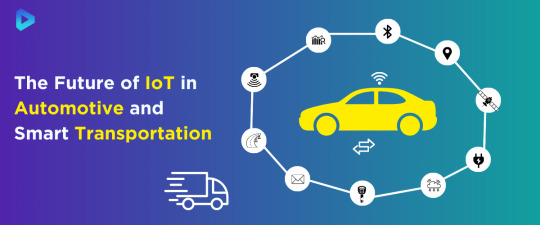
The automotive industry is undergoing a significant transformation with the integration of IoT technologies. Connected cars and smart transportation systems are becoming the norm, enhancing safety, efficiency, and convenience. In this blog, we explore how various IoT technologies and platforms are shaping the future of the automotive sector.
Role of IoT Devices in Connected Cars
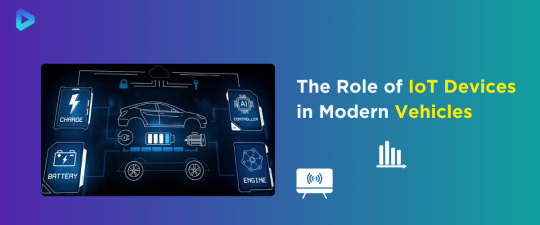
Importance of IoT Devices in Modern Automobiles
IoT devices are pivotal in modern automobiles, significantly enhancing their functionality and safety features. These devices facilitate seamless communication between vehicles and infrastructure, leading to improved traffic management and reduced accident rates. Sensors gather real-time data on how vehicles perform and how drivers behave. This information is crucial for predictive maintenance and enhancing the overall driving experience. IoT devices monitor crucial parameters like tire pressure, engine health, and fuel levels. These sensors issue prompt alerts for required maintenance.
Enhancing Vehicle Functionality with IoT Integration
Integrating IoT into vehicles drastically enhances their functionality, offering a range of advanced features. Smart cars can now include autonomous driving capabilities, real-time navigation, and personalized infotainment systems. IoT integration allows vehicles to interact with smart city infrastructure. This optimizes routes based on current traffic conditions to reduce travel time. IoT-powered navigation systems offer real-time traffic updates and recommend alternative routes to bypass congestion. IoT facilitates advanced driver-assistance systems (ADAS), including features such as adaptive cruise control, lane-keeping assistance, and automated parking.
Key Features of IoT-Enabled Automotive Systems
IoT-powered automotive systems incorporate various features that significantly boost safety and convenience for both drivers and manufacturers. These features include:
Real-Time Monitoring: Continuous monitoring of vehicle performance and health, providing timely alerts for maintenance and repairs.
Remote Diagnostics: Allowing technicians to diagnose and fix issues remotely, reducing downtime and improving efficiency.
Enhanced Connectivity: Enabling vehicles to communicate with each other and infrastructure, improving traffic management, and reducing accidents.
Advanced Security: Implementing robust security measures to protect vehicle data from unauthorized access and ensure data integrity.
Personalized Experience: Customizing infotainment systems based on driver preferences, providing a more enjoyable driving experience.
Impact of IoT Cloud on Smart Transportation
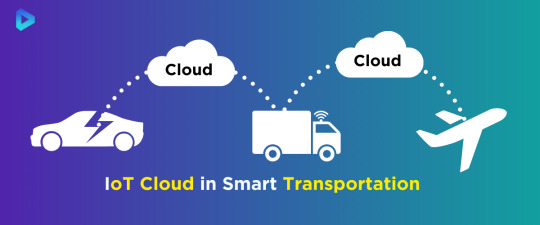
How IoT Cloud Enhances Vehicle Connectivity
The IoT Cloud significantly enhances vehicle connectivity by enabling seamless communication between vehicles and other connected devices. Vehicles can share real-time information with each other and with infrastructure systems through IoT Cloud platforms. This improves traffic flow and safety. Connected cars can communicate traffic conditions, road hazards, and optimal routes to each other. This information assists drivers in making informed choices and steering clear of traffic jams. IoT Cloud services allow for over-the-air updates. This ensures that vehicle software remains up-to-date with the latest features and security patches.
Real-Time Data Processing with IoT Cloud
Real-time data processing is a critical capability of IoT Cloud solutions. It enables vehicles to react promptly to changing conditions. The IoT Cloud processes vast amounts of data generated by sensors and devices in connected cars instantly. This immediate analysis of data allows for timely actions, such as adjusting vehicle speed to avoid collisions, optimizing fuel usage, and enhancing navigation accuracy. When a connected vehicle detects a sudden slowdown in traffic, the IoT Cloud processes this data. It then sends alerts to nearby vehicles, helping to prevent accidents. Real-time processing supports advanced driver-assistance systems (ADAS). It provides the necessary data for features like lane-keeping and adaptive cruise control.
Cost Benefits of Implementing IoT Cloud Solutions
Implementing IoT Cloud solutions offers significant cost benefits for the automotive industry. A major benefit is the decrease in infrastructure expenses. IoT Cloud services eliminate the need for extensive on-premises hardware and maintenance. Additionally, IoT Cloud solutions enable predictive maintenance, which helps identify potential vehicle issues before they become costly problems. By addressing maintenance needs proactively, companies can reduce downtime and extend the lifespan of their vehicles. IoT Cloud services allow businesses to pay only for the resources they use. This approach makes it a cost-effective solution for both small startups and large organizations.
Industrial IoT Advancements in the Automotive Sector
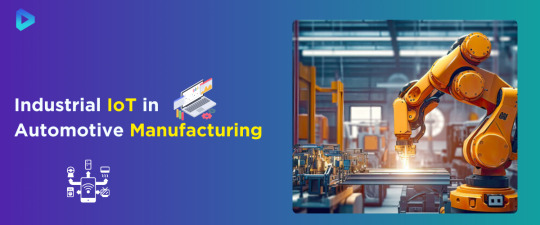
Industrial IoT Applications in Vehicle Manufacturing
Industrial IoT (IIoT) has changed vehicle manufacturing by integrating advanced sensors, data analytics, and automation technologies. These applications enable real-time monitoring and control of manufacturing processes, ensuring higher precision and quality. For example, IoT sensors can monitor equipment performance and detect anomalies, allowing for immediate adjustments to maintain optimal production conditions. Additionally, IIoT enables better inventory management through automated tracking of parts and materials, reducing waste and ensuring that production lines run smoothly. The integration of IIoT in vehicle manufacturing also facilitates seamless communication between machines and systems, improving coordination and efficiency across the production floor.
Improving Production Efficiency with Industrial IoT
Implementing Industrial IoT solutions significantly improves production efficiency in the automotive sector. By providing real-time data on production processes, IIoT helps identify bottlenecks and areas for improvement. For instance, IoT-enabled machinery can automatically adjust settings to optimize performance and minimize energy consumption. This leads to reduced downtime and increased throughput. IIoT monitors the usage of raw materials and energy, ensuring efficient resource management. The insights gained from IIoT data analytics enable manufacturers to streamline operations, reduce costs, and enhance overall productivity.
Predictive Maintenance in the Automotive Industry
Predictive maintenance is a key benefit of Industrial IoT in the automotive industry. IoT sensors monitor the condition of machinery and equipment, allowing manufacturers to predict maintenance needs, which helps prevent unexpected breakdowns and costly repairs. Vibration sensors on motors can detect early signs of wear and tear. They prompt timely maintenance before a failure occurs. This proactive approach extends the lifespan of equipment and reduces downtime, leading to significant cost savings. Additionally, predictive maintenance helps ensure consistent product quality by maintaining optimal operating conditions for machinery.
Advantages of Using Azure IoT Hub for Vehicles
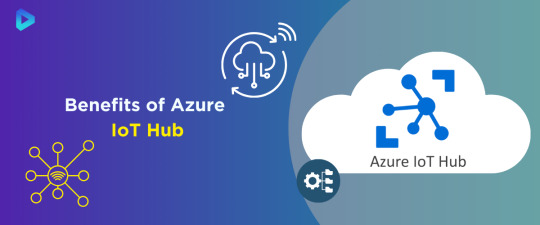
Integrating Azure IoT Hub with Automotive Systems
Integrating Azure IoT Hub with automotive systems offers numerous benefits, enabling seamless communication and data exchange between connected vehicles and cloud services. This integration facilitates real-time monitoring and control of vehicle functions, enhancing both performance and safety. Manufacturers can use Azure IoT Hub to gather and analyze data from sensors embedded in vehicles. The system provides insights into engine health, fuel efficiency, and driver behavior. The integration supports over-the-air (OTA) updates. Vehicle software remains current with the latest features and security patches.
Features of Azure IoT Hub for Smart Cars
Azure IoT Hub offers a range of features that are particularly beneficial for smart cars. These features include:
Device Management: Enables remote monitoring and control of vehicle systems, allowing manufacturers to diagnose issues and deploy updates without physical access.
Data Ingestion and Analysis: Collects and processes large volumes of data from connected vehicles, providing actionable insights for improving vehicle performance and safety.
Security: Implements robust security protocols to protect vehicle data from unauthorized access and cyber threats.
Compatibility: Supports integration with various IoT devices and platforms, ensuring seamless communication across different systems.
Scalability: Azure IoT Hub can handle a vast number of connected devices. The capability is suitable for large-scale deployments in the automotive industry.
Scalability Benefits of Azure IoT Hub
Azure IoT Hub's ability to grow is a significant advantage. It is crucial for automotive manufacturers and service providers. Azure IoT Hub can efficiently manage and process data from millions of connected vehicles. This ensures consistent performance regardless of the scale of deployment. This ability to grow allows automotive companies to expand their IoT solutions as their fleet grows. It ensures there is no compromise on performance or reliability. Additionally, Azure IoT Hub's scalable architecture supports diverse use cases, from small pilot projects to large-scale commercial deployments.
Using Thingspeak for Automotive Data Analysis

Thingspeak Applications in Vehicle Diagnostics
Thingspeak is a powerful tool for vehicle diagnostics, offering real-time data analysis and insights. By leveraging Thingspeak, automotive companies can monitor engine performance, fuel efficiency, and other critical parameters. This data helps in identifying potential issues before they become serious problems, enabling proactive maintenance. For instance, Thingspeak can track temperature variations in engine components, alerting technicians to possible overheating issues. This application of Thingspeak in vehicle diagnostics not only improves vehicle reliability but also enhances the safety and satisfaction of the driver.
Real-Time Monitoring with Thingspeak for Cars
Real-time monitoring is one of the standout features of Thingspeak for cars. Thingspeak collects and processes data from various sensors in real-time. This provides instant insights into vehicle performance and health. This capability allows for immediate response to any problems or malfunctions, reducing the risk of breakdowns. If a vehicle's tire pressure drops below a safe level, Thingspeak can instantly alert the driver. It can also suggest nearby service stations.
Data Visualization Capabilities of Thingspeak
The data visualization capabilities of Thingspeak are essential for making sense of complex automotive data. With its powerful visualization tools, Thingspeak can transform raw data into easily understandable graphs and charts. This helps automotive engineers and technicians quickly identify trends and patterns, helping better decision-making. For instance, Thingspeak can display a heat map of engine performance, highlighting areas that require attention. Teams can share these displays across departments, improving collaboration and efficiency in addressing vehicle issues.
Verizon Thingspace and Its Automotive Applications
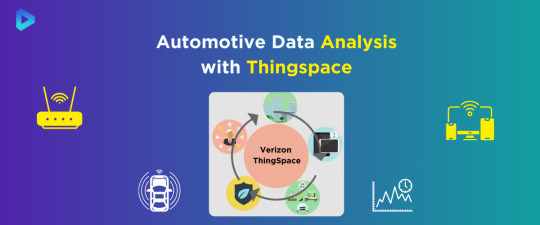
Connecting Vehicles with Verizon Thingspace
Verizon Thingspace provides robust solutions for connecting vehicles, helping seamless communication between cars, infrastructure, and cloud services. By leveraging Verizon's reliable network, automotive companies can ensure that their vehicles remain connected, regardless of location. Connectivity allows for real-time data exchange. It enables features such as remote diagnostics, over-the-air updates, and enhanced navigation services. A connected car can receive software updates and new features without needing a visit to the dealership. The vehicle always has the latest capabilities.
Features of Verizon Thingspace for Automotive Industry
Verizon Thingspace offers a variety of features tailored specifically for the automotive industry. Key features include:
Device Management: Simplifies the process of managing multiple connected devices, ensuring they are functioning correctly and securely.
Data Analytics: Provides powerful tools for analyzing vehicle data, helping manufacturers improve performance and efficiency.
Security: Advanced encryption and verification protocols protect data transmitted between vehicles and the cloud.
Scalability: Supports the growth of connected vehicle fleets, making it easy to add new devices and scale operations.
Enhancing Vehicle Connectivity with Verizon Thingspace
Verizon Thingspace significantly enhances vehicle connectivity by providing a robust and scalable platform for IoT applications. The platform enables vehicles to communicate seamlessly with each other and with external systems. It helps with traffic management, emergency response, and fleet management. Enhanced connectivity also allows for better integration with smart city infrastructure, improving overall transportation efficiency. Connected cars can share real-time traffic data with city planners. This sharing helps to reduce congestion and improve road safety.
Let's Discuss Your Idea
#IoT#IoT Devices#IoT Cloud#Industrial IoT#Azure IoT Hub#Thingspeak#Verizon Thingspace#Iot Internet#Internet Of All Things#ai#blockchain#iotsolutions#iot applications#iot development services#iot tech
1 note
·
View note
Text
In a world of rapid tech evolution, DevOps is your compass for streamlined development and operational excellence. Join us on the journey of continuous innovation! 🌐 Readmore: https://livewirecoimbatore.com/
Reach Us: 8870275880
Hands-on Experience DevOps
#devops#cloud#aws#programming#cloudcomputing#technology#developer#linux#python#coding#azure#software#iot#cybersecurity#kubernetes#it#css#javascript#java#devopsengineer#tech#ai#datascience#docker#softwaredeveloper#webdev#machinelearning#programmer#bigdata#security
0 notes
Text
Boost Your Brand’s Voice with Our AI Content Generator Solution
Atcuality offers a next-gen content automation platform that helps your brand speak with clarity, consistency, and creativity. Whether you’re a startup or an enterprise, content is key to growth, and managing it shouldn’t be overwhelming. At the center of our offering is a smart AI content generator that creates high-quality text tailored to your audience, industry, and goals. From social captions and ad creatives to long-form blog posts, our platform adapts to your needs and helps reduce time-to-publish dramatically. We also provide collaboration tools, workflow automation, and data insights to refine your strategy over time. Elevate your brand’s voice and reduce content fatigue with the intelligence and reliability only Atcuality can offer.
#seo marketing#seo services#artificial intelligence#digital marketing#seo agency#seo company#iot applications#ai powered application#azure cloud services#amazon web services#ai model#ai art#ai generated#ai image#ai#chatgpt#technology#machine learning#llm#ai services#ai seo#augmented reality agency#augmented reality#augmented and virtual reality market#augmented intelligence#virtual reality#virtual assistant
2 notes
·
View notes
Text

Experience the perfect blend of speed, reliability, and scalability with cloud technology. ⚡ Elevate your app’s performance and keep users coming back for more! 🔗Learn more: https://greyspacecomputing.com/custom-mobile-application-development-services/ 📧 Visit: https://greyspacecomputing.com/portfolio
#GreySpaceComputing#CloudTech#AppScalability#cloudcomputing#cloud#technology#cybersecurity#aws#bigdata#devops#it#datacenter#azure#cloudstorage#linux#programming#software#tech#iot#cloudservices#coding#cloudsecurity#machinelearning#informationtechnology#datascience#business#python#security#microsoft#dataprotection
1 note
·
View note
Link
Internet of Things (IoT) has emerged as a game-changer, it has transformed industries, improved efficiency, and changed the way we interact with the world around us. However, as IoT devices become more prevalent in our lives, so do the security concerns associated with them. Azure, Microsoft’s cloud computing platform, is poised to be at the forefront of IoT security, shaping the future of this rapidly growing field.
0 notes
Text
Master the cloud with 15 books covering AWS, Azure, Google Cloud, and more!
Master the cloud with 15 books covering AWS, Azure, Google Cloud, and more! #aws #azure #googlecloud #sale #book #books #finance #education #developer #programming
Use this link to check out the three bundle options with up to 15 books! Learn how to leverage leading cloud platforms for mission-critical tasks—from data science to smart device control—with this book bundle from O’Reilly! Architecting IoT Solutions on Azure will teach you about device management at scale and get you up to speed on Azure’s tools for building globally distributed systems. Data…

View On WordPress
#aws#azure#book#books#budgeting#coding#data#ebook#ebooks#education#finances#humble bundle#investing#iot#programming#sale
1 note
·
View note